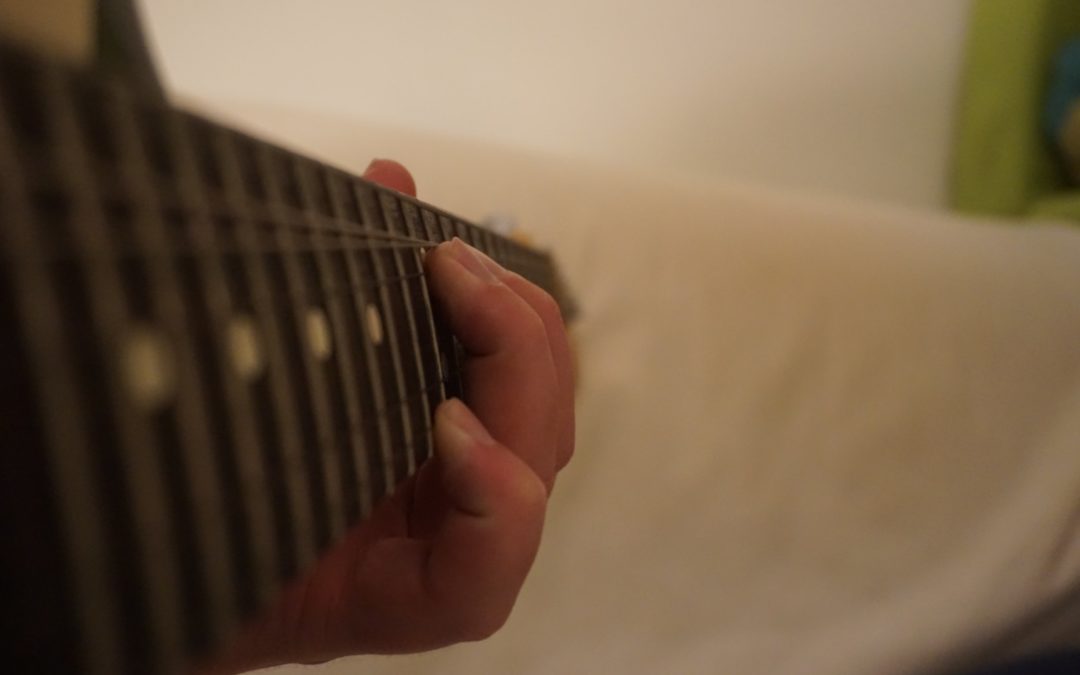Last week we talked about the phrase “music is the universal language” and we touched on a few similarities to prove this notion. This week we are going to look at some of the practical implications of what that means and how that can positively impact your playing.
I’m going to break down some elements of playing the guitar and music into aspects of the language to help draw out the importance of these characteristics in your playing.
Vocabulary and Phrases
Whenever people first try to learn a language, they will often start with a few words and phrases. Like “hello”, “yes”, “no”, “how are you”, “where is….”, “one kebab please” etc. These come up over and over again but usually don’t mean too much when they stand alone. However, they’re essential. These are like our chords and even our licks. We learn these as one offs and to play them just by themselves doesn’t really make sense. However, the more you know and are able to apply, the smarter you sound and the more options you have for communicating a certain message.
How does this help? – When learning a language we are always wanting to learn new and more complex vocabulary, sometimes vocabulary with a slightly more specific meaning, and we are generally doing this to no end, even in our native language. The same goes for learning new chords or licks. There are infinite amounts of voicings or licks that we may be able to use to say just the right thing we are going for.
In this context, stringing a sentence together is really like playing a verse or chorus of a song, and a paragraph a whole song.
Technique
Technique is like your pronunciation. It is absolutely foundational, when I decided to try Mandarin, my Mandarin-fluent friend told me to get this before anything else, as many who were now quite proficient in Mandarin couldn’t quite sound fluent because their poor pronounciation was embedded. This is the same for technique when learning guitar.
Without good pronunciation, you may make your way through a lot of the language sounding ok, but you’re really going to struggle with the harder words, or even make the simple words and sentences sound nice and clear.
How does this help? Quite simply, it’s an important lesson in that you need to address the technique from the start if you want to have total control of the instrument.
Theory and fretboard knowledge
Theory and knowing the fretboard is like understanding the grammar of the language. It’s a no brainer that grammar is extremely foundational, but more so, grammar helps us to make sense of what we do know so we can use it again in new ways. Without the grammar, you may know how to say things here and there, and it may even sound good, but not knowing how it works makes it hard to apply it to other situations and use it to its full potential.
How does this help? Imagine learning how to use –ing but all that you knew and were ever taught was one example “I am going to the shops” with no explanation of why it makes sense. It would be pretty hard to then apply this knowledge to other situations. The same is true for guitar, the more grammar you know, the more you can easily apply what you learn to be creative in your own way.
Rhythm & Timing
Well rhythm and timing is like rhythm and timing really. Timing is important in any language. A good example is comedy – timing is extremely important. It can’t be too quick, or too slow, not ahead, not behind, it has to sit right. If it’s sloppy and all over the place, it’s uncomfortable.
How does this help? Well this one is fairly obvious, but imagine speaking sentences when you are constantly speeding up and slowing down. It sounds weird and uncomfortable. This is how important timing is in music, but it’s even more subtle.
Reading
It’s hard to claim you know a language without being able to read it and understand it. This is where our sight-reading comes in. The benefits gained from these skills are ample – more opportunities to practice and use the language, a better visual understanding of the language and a strong connection between how words look and how they sound.
How does this help? Well-read people are generally very smart, and vice versa. The same rule applies here.
So what’s fluency?
Fluency in a language is when you can converse and are actually able to articulate what you are communicating with ease. This is when you have control and command of the language.
So translating (#languageword) that to guitar, when you can use the instrument to communicate what you want it to, just about every time, with a certain level of ease. Of course, as with language, there will ALWAYS be more to learn.
Thank for checking this out. There is so much more that could be unpacked in this topic but hopefully this has been helpful to see how different elements of your playing may affect your ability to communicate with the guitar.
Don’t forget to like, subscribe, comment and contact me for any enquiries or 90s Simpsons quotes.
